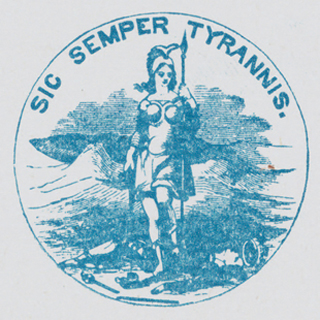
“I approve of the [emancipation] proclamation, but I don’t think it is going to scare the South into submission. I think it will result in the total overthrow of slavery, but next winter will witness scenes so bloody that the horrors of the French Revolution will be peace in comparison to it. If the South will have it so, the blood be on her own head. Seward was right—the “irrepressible conflict” will continue till freedom or slavery rules the nation.”
PRIVATE OLIVER WILLCOX NORTON, EIGHTY-THIRD PENNSYLVANIA VOLUNTEERS, LETTER TO HIS FATHER, SEPTEMBER 29, 18621

“We of the South remain calm and full of faith, knowing that victory must be ours, & that the falsehoods of the Yankee Generals cannot long be concealed. Oh! When is it to end, when are they going to be convinced that they cannot overcome those who have justice & God upon their side.”
MRS. CORA IVES, LETTER TO HER MOTHER, SEPTEMBER 11, 18622
It is nearly a hundred years since our people first declared to the nations of the world that all men are born free; and still we have not made our declaration good,” Louisiana-based Union general John Wolcott Phelps wrote, in the spring of 1862. Confronting a growing population of “contraband” men, women, and children under Federal protection in the Union-occupied portion of the state, Phelps revealed his own abolitionist bent in a long letter to military authorities in New Orleans. “It is clear that the public good requires slavery to be abolished,” he declared, although that assertion was still far from acceptable to many in the North and most in the South. And he asked a question troubling even to those who favored emancipation: “in what manner is it to be done?” Free black men in the North continued to pose another vexing, and related, question: when would they be allowed to serve in the Union army?
Lieutenant Oliver Willcox Norton (1839–1920), USA. As a private with the Eighty-third Pennsylvania Volunteers, Norton was the first bugler to play the version of “Taps” that Americans know today. In November 1863, after going through a battery of tests, the eloquent young soldier became an officer in the Eighth United States Colored Troops.
Unidentified African American Union Soldier at Benton Barracks, Saint Louis, Missouri. Hand-colored quarter-plate tintype by photographer Enoch Long (1823–1898). Finally allowed to join the U.S. Army (see August 25 and September 22, 1862, and January 1, 1863), African American soldiers fought discrimination from many of their white comrades-in-arms even as they faced particular dangers in action against Confederate forces. More than 186,000 black men eventually served with Union forces.
That same spring, the powerful Union Army of the Potomac was finally on the offensive, having been transported to the Virginia Peninsula, where its ultimate target was the Confederate capital at Richmond. Northern morale and expectations were high: with Federal armies so lately triumphant in the West (at Forts Henry and Donelson, New Orleans, and, despite fearful losses and postbattle recriminations, at Shiloh), a similar outcome on the Peninsula seemed certain. This would surely mean a swift and successful end to the war—and Army of the Potomac troops were determined to play their proper part in securing that overall victory. “[T]here seems to be a determination on the part of this army, that, if it depends on us, the honor of restoring the Union shall not rest wholly on the army of the west,” Bugler Oliver Willcox Norton, of the Eighty-third Pennsylvania Volunteers, wrote in his diary, on May 1, 1862. “That portion of the army has done nobly. They have had the hardest fighting to do, but, if I do not mistake the character of the men I see in the army here, they only wait the opportunity to do as well.”
Norton and the other 115,000 men of the Army of the Potomac pushed forward, hampered not only by Confederate forces but also temperamental weather, inferior roads, unhappy geographical surprises not indicated on the army’s unsatisfactory maps, and General George B. McClellan’s overcautious leadership. As this massive armed force moved slowly up the Peninsula, clouds of apprehension descended on Richmond. The Confederate Congress adjourned and members fled the city; stores of gold and important papers were packed for shipment farther south should the worst occur; refugees fleeing before the Union army surged into the city even as Richmond citizens crowded into train stations and onto wharves trying to get away. Yet few Southerners, whether in Richmond or awaiting news of its fate, were seriously contemplating defeat or surrender. From North Carolina, fervent Confederate Catherine Edmondston surveyed recent Southern defeats and current threats with an air of grim determination: “Now indeed begins the war of Endurance,” she wrote in her diary, on May 2, 1862, “a war in which we women must show the men that we are their equals—nay their superiors!… Endurance! Patience! Cheerfulness! Faith!—these be my Captains under whose banners I enlist! God grant that under them my country men may all be united into a glorious band…”3
Campaign in Virginia. Game with military figures housed in a wooden box, circa 1890. Although some of the uniforms on the pieces are less than accurate, this game clearly commemorates the four years of near ceaseless battlefield clashes and strategic maneuvering that occurred in Virginia. The first major Union campaign in the state, George B. McClellan’s Peninsula Campaign, took place in spring 1862 and brought Robert E. Lee to the forefront of the Confederacy’s military efforts.

Details from one envelope printed during the Civil War include a potent Confederate declaration borrowed from the American Revolution, “Don’t Tread on Us,” and the motto “Sic Semper Tyrannis” (Thus always to tyrants), which John Wilkes Booth will shout one terrible night near the end of the war (see April 14, 1865).